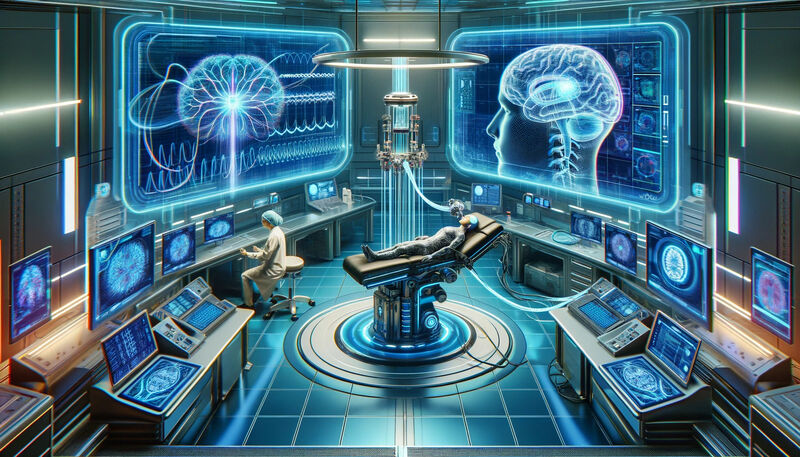Neuralink Faces Challenges as Brain Implant Malfunctions in Initial Human Trial

Neuralink, the ambitious startup founded by Elon Musk, encountered a significant setback when part of its brain implant malfunctioned following its first implantation into a human subject, the company revealed on Wednesday. This incident marks a crucial moment in the company's quest to develop a brain-computer interface (BCI) that could potentially revolutionize assistance for patients with paralysis.
In a detailed account shared via a blog post, Neuralink disclosed that several threads of the device, known as the Link, had retracted from the brain of Noland Arbaugh, a 29-year-old patient who underwent the pioneering procedure in January. This malfunction occurred weeks after the implant was first placed and was highlighted during a live demonstration in March, where Arbaugh was shown utilizing the BCI system.
The Link Implant
The Neuralink device, referred to as the Link, incorporates 1,024 electrodes distributed across 64 threads thinner than a human hair, designed to record neural signals. This innovative technology aims to enable individuals with severe physical disabilities to control external technology purely through thought.
Technical Setbacks
Despite the initial success of the surgery, which Neuralink described as going "extremely well," the subsequent retraction of the threads has resulted in a reduction in the number of effective electrodes. This complication has impaired the device’s ability to accurately and swiftly measure neural inputs, which are essential for the BCI’s functionality.
In response to these challenges, Neuralink has updated its recording algorithms and enhanced its user interface to better translate neural signals into cursor movements on a computer screen. Although the company considered removing the implant due to the malfunction, it was deemed unnecessary as the issue has not posed any direct risk to Arbaugh's safety, according to reports from The Wall Street Journal.
User Experience
Despite the technical difficulties, Arbaugh has reportedly been able to use the BCI system extensively, averaging about eight hours per day on weekdays and often up to ten hours on weekends. He has described the experience as a "luxury overload" that has significantly helped him reconnect with the world around him.
Looking Ahead
While Neuralink is pioneering in the BCI space, it is not alone in its endeavors. Numerous other companies and academic institutions have been exploring similar technologies for decades. However, Neuralink’s path forward involves rigorous safety and efficacy testing to meet the standards required for U.S. Food and Drug Administration approval before it can commercialize the technology.
As Neuralink navigates these challenges, the broader implications for the field of neurotechnology and for patients eagerly awaiting such innovations remain significant. The outcome of Neuralink's ongoing trials will be closely watched by industry experts and potential users alike, who are hopeful for a future where such advanced technologies can offer enhanced mobility and communication for those with severe physical limitations.

